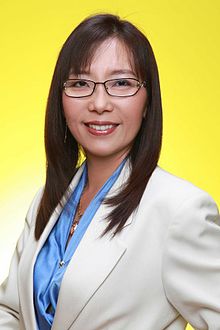KUALA LUMPUR, MALAYSIA — Malaysian Sustainable Palm Oil certification will become mandatory for many oil palm plantations in the country on Dec. 31, according to the Malaysian government. The M.S.P.O. certification differs from the Roundtable on Sustainable Palm Oil certification, according to the Malaysian government, and current R.S.P.O. certification should make it easier to obtain M.S.P.O. certification.
The M.S.P.O. certification logo will be available for food companies to begin using on their product labels that contain Malaysian palm oil as of Jan. 1. The Malaysian government points to a survey from EcoFocus Worldwide that examined the U.S. consumer market for sustainable palm oil. The survey of 4,000 adults found 64% in 2017 said they had heard about sustainable palm oil, which was up from 53% in 2014.
Plantation companies already certified by the R.S.P.O. must obtain M.S.P.O. certification by Dec. 31. Companies not certified by the R.S.P.O. must obtain M.S.P.O. certification by June 30, 2019.

“Since M.S.P.O. is prescribed as a mandatory certification system, it will emerge that past the cut-off date, anyone in the Malaysian palm oil supply chain not certified by M.S.P.O. could lose their operating license,” said Teresa Kok, Malaysian minister of primary industries. “This is a serious enough challenge, and we feel that the industry will rather prescribe toward mandatory M.S.P.O. certification rather than cease their operating license.”
The M.S.P.O. standards cover seven areas: management commitment and responsibility; transparency; compliance to legal requirements; social responsibility, safety and employment conditions; environment, natural resources, biodiversity and ecosystem services; best practices; and development of new plantings.
“The M.S.P.O. certification program is not aimed at competing with other certification methods but rather supporting Malaysia’s people, environment and wildlife,” Ms. Kok said.
The M.S.P.O. program, launched as a voluntary program in 2015, has certified 889,000 hectares (2,197 acres), or about 20% of Malaysia’s palm-planted land. More than 40% of the oil palm planted area in Malaysia is tended by family farmers, also called smallholders, who receive financial assistance to meet M.S.P.O. certification.
Malaysia produces nearly half of the palm oil certified by the Roundtable on Sustainable Palm Oil, Ms. Kok said. The R.S.P.O., a not-for-profit association formed in 2004, unites stakeholders in the palm oil industry. The R.S.P.O. in November adopted a separate certification standard specifically for independent smallholders, which is due for ratification in November 2019, and a deforestation standard through the implementation of a high carbon stock approach. The R.S.P.O. principals and criteria are a set of environmental and social standards that member companies must comply with to meet R.S.P.O. certification standards.




